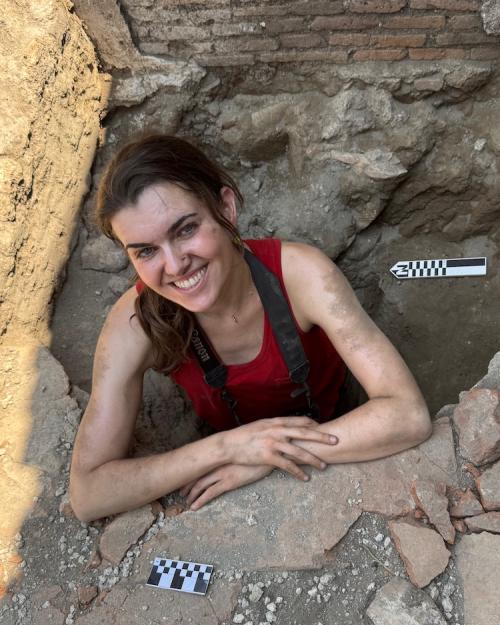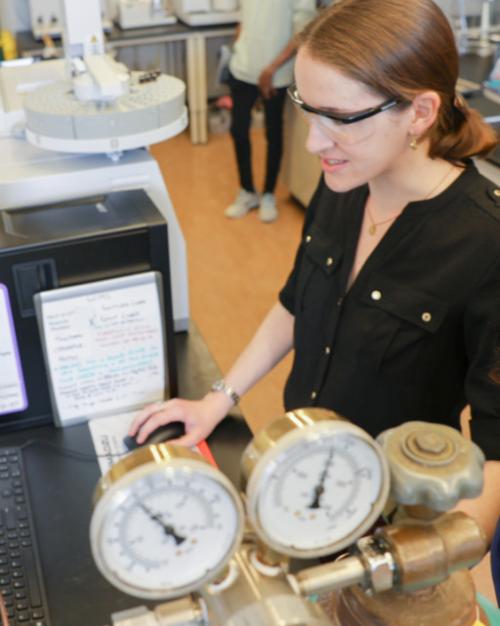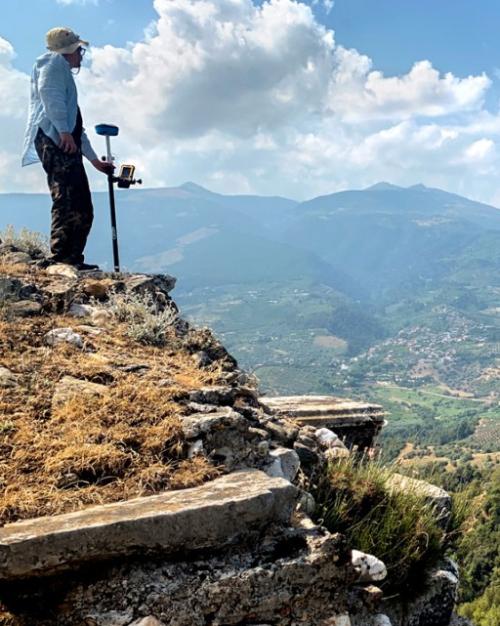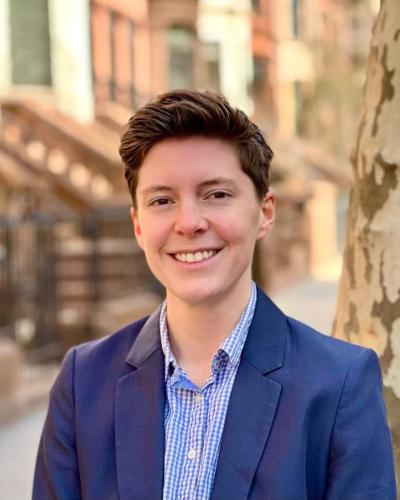The Cornell Classics Department is excited to welcome its newest post-doctoral fellow, Cat Lambert. Cat will soon complete her PhD in Classics at Columbia University and join the Classics department at Cornell as a post-doctoral fellow for the 2022-2023 academic year, and then as an assistant professor.
Cat works widely on Latin and Greek literature, with particular interests in book history, gender, and queer studies. Her current research is driven by a desire to open up new understandings of material texts and their readers in antiquity. In particular, in her recent article, “The Ancient Entomological Bookworm” (Arethusa 2020), she traces the vermiculate gaps left in the bookworm’s wake as it munches through the papyrus scroll and becomes activated by imperial Greek and Latin texts as a metaphor for skewering inept, pedantic readers of low-social status.
Cat’s book project, Bad Readers in Ancient Rome, builds on a central insight from her work on the bookworm, which, she says, “is that staking a claim to an ideal, readerly embodiment over another also stakes a culturally specific claim to power, embodiment, and identity”. Her book blends the methodology of book history with the insights of feminist, queer, and critical theory to understand why certain readerly embodiments are stigmatized for deviating from the hegemonic norm, and to illuminate the broader material, social networks that are adumbrated by books as objects in the imperial Roman Mediterranean. “Bad readers”, she says, “offer a powerful locus for telling a new story about books and readers in antiquity, as well as a lens for theorizing how certain hermeneutic modes in the discipline today participate in and reproduce hierarchies of power”.
Cat has taught Classics in a variety of contexts, including a one-year stint at Eton College, where she also coached boys’ rugby. At Cornell, Cat is especially excited to teach “Queer Classics: Desire, Embodiment, Backward Glances,” a course she designed and taught as a Teaching Scholar at Columbia University. In this course, she says, “students engage with a wide array of literary and material evidence for queerness in the ancient Mediterranean, as well as its reception in various contexts”. One of the central goals of the course is to account for the range of desires and political commitments that motivate ‘backward glances’ to the past, and to debunk the myth of the disembodied, objective scholar: to that end, students learn how to analyze scholarship (and translation) as an artifact that is motivated by various cultural and ideological forces and that registers the shifting landscape of queerness and its intersections with gender, race, class, etc. at the time of its composition. Another key objective of “Queer Classics”, Cat says, “is to study the reception of ancient queerness (and queering of antiquity) beyond traditional, elite scholarly contexts, including the poetry of C. P. Cavafy and Ocean Vuong, zines and lesbian newsletters, podcasts, and social media platforms”. Cat is looking forward to developing this course with colleagues at Cornell, including Associate Professor of Literatures in English Masha Raskolnikov (who has recently co-edited Trans Historical – Gender Plurality before the Modern, an exciting, interdisciplinary volume about premodern trans, nonbinary, and gender-complicated people), Brenda Marston, curator of Cornell’s Human Sexuality Collection, and Assistant Professor in History Stephen Vider (who directs the Public History Initiative at Cornell).
As a graduate student, Cat also participated in several of the Columbia & Barnard Ancient Drama Group productions, starring in the geriatric roles of Aeschylus in Frogs, Amphitryon in Heracles, and the Old Man in Iphigenia at Aulis. She is excited to be joining a department that “has a strong tradition of ancient drama and performance”, she says.
Born in the Blue Ridge Mountains of southern Virginia, Cat is looking forward to returning to nature after six years in Manhattan.
Please join the Classics Department in welcoming Cat Lambert to Cornell!





